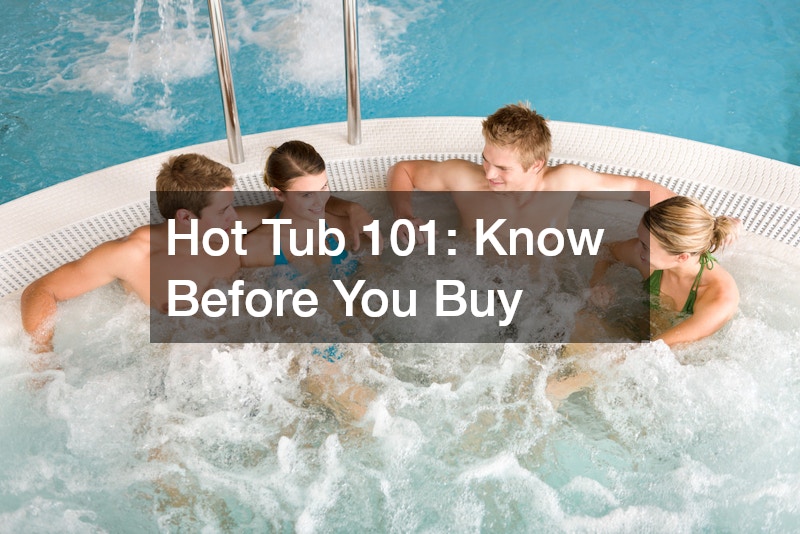
Before making the investment in a hot tub, it's essential to understand various important factors that will affect your experience and satisfaction. Beyond just picking a model you like, there are considerations around cost, maintenance, and long-term enjoyment that you’ll want to think through carefully. This article aims to provide insights and answers to common questions about purchasing a hot tub so you can feel confident about choosing the best option for your lifestyle and needs.
Video Source
When exploring your options, it's crucial to understand the various types of hot tubs, including inflatable, portable, and in-ground models. Inflatable hot tubs are a great entry-level choice for those who want a temporary solution. They are generally less expensive and easy to set up, making them perfect for casual users.
Portable hot tubs offer more stability and features than inflatable units. They can be taken down and moved relatively easily, but they require a dedicated space and more maintenance. These might be better suited for those who are considering a permanent installation without going the full in-ground route.
In-ground hot tubs are more of a permanent investment. They are built into the ground and offer the most customization options. However, they often come with higher installation costs and are a more significant commitment, making them ideal for homeowners looking to enhance their property value.
Cost is a significant factor when buying a hot tub. Understanding the upfront costs along with installation and maintenance expenses can help you budget effectively. A basic inflatable hot tub might set you back between $300 and $600, while portable options can range from $2,000 to $5,000 depending on the features.
In-ground hot tubs, on the other hand, often start around $5,000 and can go upwards of $15,000 or more. Beyond the purchase price, you also need to account for potential installation costs, which can vary greatly based on the complexity of your setup. Hiring professionals will add to your overall budget but may be worth it for quality assurance.
Additionally, ongoing expenses such as electricity, water, chemicals, and routine maintenance will impact your long-term costs. It is advisable to create a comprehensive budget that covers these areas to avoid financial strain after your initial purchase.
Hot tubs come with a variety of features that enhance the user experience. Knowing which features matter to you—like jet types, lighting, and temperature control—can help you choose the right model. For instance, adjustable jets are essential for those who seek tailored hydrotherapy for specific muscle groups.
LED lighting, waterfalls, and speakers can transform a hot tub experience into a more relaxing, immersive one. Features like these go beyond functionality; they create an atmosphere that encourages relaxation and enjoyment, turning your hot tub into a retreat.
Temperature control is another vital feature to consider. Models with quick-heating systems and efficient insulation can help maintain comfortable water temperatures, ensuring that your hot tub is ready whenever you are. Features like these may impact your usage and overall satisfaction with your investment.
Proper maintenance is crucial for the longevity and performance of your hot tub. Understanding the cleaning routines, chemical balance, and winterization processes is vital for any potential owner. Regularly cleaning the filters and the surface helps to keep the water clear and free from harmful bacteria.
Maintaining the right chemical balance is also key. You should regularly test your hot tub water and adjust pH, alkalinity, and sanitizer levels accordingly. This ensures a healthy swimming environment and extends the life of your hot tub components.
Don't forget about winterization if you live in a cold climate. Properly draining the unit, covering it, and protecting the plumbing will make sure your investment is safe during the colder months. An understanding of these maintenance aspects can keep your hot tub in pristine condition for years to come.
Investing in a hot tub can greatly enhance your home experience, but it's essential to do your research. By understanding the types, budgeting appropriately, looking into features, and knowing about maintenance, you can make an informed decision before you buy.
